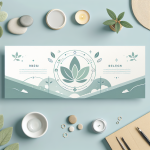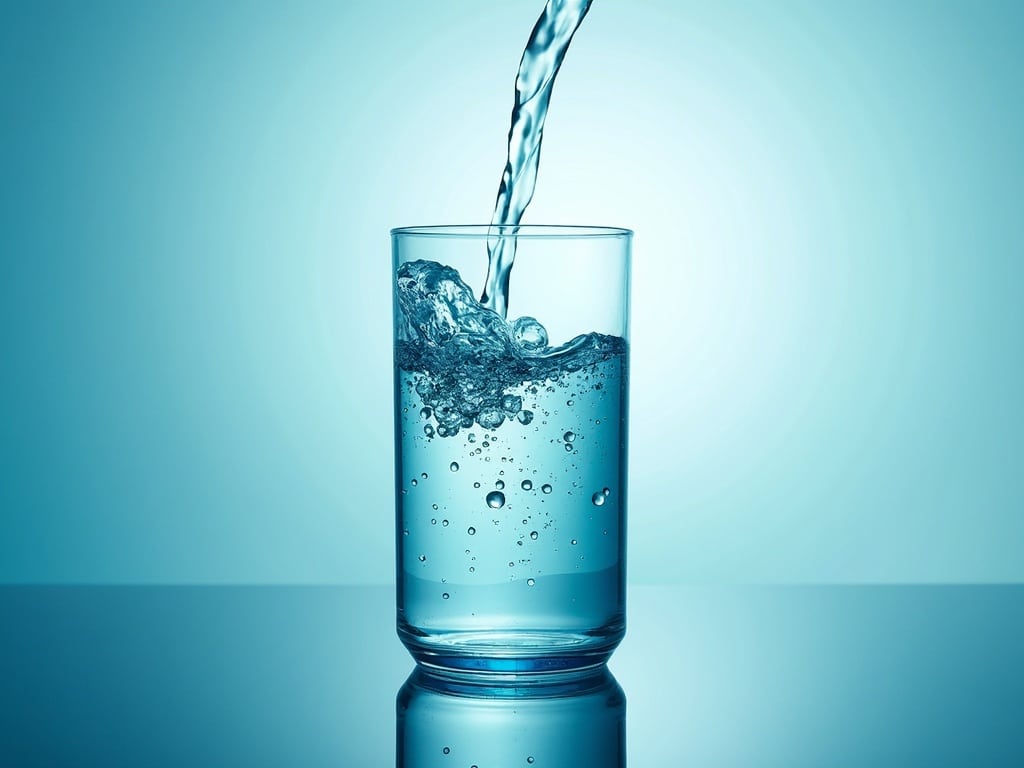How to Drink More Water Every Day: A Complete Guide to Radiant Hydration
Ever feel like you're dragging, even after a full night's sleep? Or notice your skin looking a little dull, despite your best skincare efforts? The simplest solution might be the one we often overlook: drinking more water. It's not just about quenching thirst; proper hydration is the cornerstone of health, energy, and glowing skin. But let's be honest, remembering to drink enough water can feel like a chore. This guide will transform hydration from a task into a natural, enjoyable part of your daily routine.
Why is Hydration So Important?
Water is essential for virtually every bodily function. It regulates temperature, transports nutrients, lubricates joints, and helps flush out waste. When we're dehydrated, even mildly, our bodies feel the strain. This can manifest as:
- Fatigue: Water helps deliver oxygen to our cells, and a lack of it can lead to sluggishness.
- Headaches: Dehydration can trigger headaches and migraines.
- Dry Skin: Water keeps your skin plump and elastic. Dehydration leads to dryness, fine lines, and a less radiant complexion.
- Digestive Issues: Water aids in digestion and prevents constipation.
- Impaired Cognitive Function: Even slight dehydration can impact concentration and memory.
The benefits of adequate hydration extend far beyond just avoiding these negative symptoms. Proper hydration can boost your metabolism, improve your mood, and even reduce your risk of certain chronic diseases. It's truly a foundational element for overall well-being.
How Much Water Do You Need?
The oft-repeated eight glasses a day is a good starting point, but individual needs vary. Factors like activity level, climate, and overall health play a significant role. A general guideline is to aim for half your body weight in ounces of water per day. For example, if you weigh 150 pounds, aim for 75 ounces of water (about nine glasses). If you're physically active or live in a hot climate, you'll likely need more.
Signs You Might Be Dehydrated
Paying attention to your body's signals is crucial. Some common signs of dehydration include:
- Thirst (obviously!)
- Dark urine
- Infrequent urination
- Dry mouth and throat
- Dizziness or lightheadedness
- Muscle cramps
Simple Strategies to Drink More Water Every Day
Now that we understand the importance of hydration, let's dive into practical strategies to increase your water intake:
1. Start Your Day with Water
Make it a habit to drink a glass of water first thing in the morning, before you even reach for your coffee. This helps rehydrate your body after sleep and kickstarts your metabolism. Add a squeeze of lemon for an extra boost of flavor and vitamin C.
2. Invest in a Water Bottle You Love
Having a reusable water bottle that you enjoy using is essential. Choose one that's the right size for your needs, easy to carry, and made from materials you feel good about. Glass, stainless steel, and BPA-free plastic are all good options.
3. Set Reminders
Life gets busy, and it's easy to forget to drink water. Set reminders on your phone or use a hydration tracking app to prompt you throughout the day. Experiment with different intervals to find what works best for you. Some people prefer hourly reminders, while others find it more effective to set reminders for specific times of the day, like before and after meals.
4. Make Water More Appealing
Plain water can sometimes feel boring. Infuse your water with fruits, vegetables, and herbs to add flavor and nutrients. Some popular combinations include:
- Cucumber and mint
- Lemon and ginger
- Berries and basil
- Orange and grapefruit
Experiment with different combinations to find your favorites. You can prepare a large batch of infused water in the morning and keep it in the fridge for refreshing hydration throughout the day.
5. Drink Water Before Meals
Drinking a glass of water before each meal can help you feel fuller, potentially leading to reduced calorie intake. It also aids in digestion. Make it a conscious habit to reach for water before you start eating.
6. Swap Sugary Drinks for Water
Sugary drinks like soda and juice not only lack nutritional value but can also contribute to dehydration. Replace these with water or unsweetened alternatives like herbal tea or sparkling water. You'll be surprised how much better you feel when you cut back on sugary drinks.
7. Keep Water Visible and Accessible
Keep a water bottle or glass of water on your desk, in your car, and anywhere else you spend a lot of time. Seeing water readily available will serve as a visual cue to drink more often.
8. Drink Water During and After Exercise
Exercise increases your fluid needs, so it's important to hydrate before, during, and after your workouts. Carry a water bottle with you to the gym or during outdoor activities. Replenish lost fluids and electrolytes by drinking water or a sports drink after exercising.

Beyond Water: Hydrating Foods
While drinking water is crucial, you can also increase your fluid intake through the foods you eat. Many fruits and vegetables have a high water content. Incorporate these hydrating foods into your diet:
- Watermelon: About 92% water
- Cucumber: About 96% water
- Strawberries: About 91% water
- Celery: About 95% water
- Spinach: About 93% water
- Lettuce: About 96% water
Adding these foods to your salads, smoothies, and snacks can significantly contribute to your overall hydration levels.
Troubleshooting Common Hydration Challenges
Even with the best intentions, some challenges can hinder your hydration efforts:
I Don't Like the Taste of Water
If you find plain water unappealing, try infusing it with fruits, vegetables, or herbs, as mentioned earlier. Sparkling water can also be a refreshing alternative. Experiment with different brands and flavors to find one you enjoy. You can also try adding a small amount of unsweetened flavoring, like a squeeze of lemon or lime juice.
I'm Always Too Busy
Make hydration a priority by integrating it into your daily routine. Keep a water bottle readily available and set reminders on your phone. Even a few sips throughout the day can make a difference. Preparing infused water in advance can also save time.
I Forget to Drink Water
Use visual cues and reminders to prompt you throughout the day. Keep a water bottle on your desk, in your car, and in your bag. Set reminders on your phone or use a hydration tracking app. Enlist the help of a friend or family member to remind you to drink water.
The Long-Term Benefits of Staying Hydrated
Making hydration a consistent habit has profound long-term benefits for your health and well-being:
- Improved Skin Health: Hydrated skin is more supple, radiant, and less prone to wrinkles.
- Enhanced Energy Levels: Adequate hydration can combat fatigue and improve overall energy levels.
- Better Digestion: Water aids in digestion and prevents constipation.
- Reduced Risk of Chronic Diseases: Staying hydrated can lower your risk of kidney stones, urinary tract infections, and other health problems.
- Improved Cognitive Function: Hydration supports optimal brain function, enhancing concentration and memory.
Make Hydration a Lifestyle
Drinking more water every day isn't just a quick fix; it's a lifestyle change that can transform your health and well-being. By incorporating these simple strategies into your daily routine, you can make hydration a natural and enjoyable part of your life. Embrace the power of water and unlock a healthier, more radiant you.

